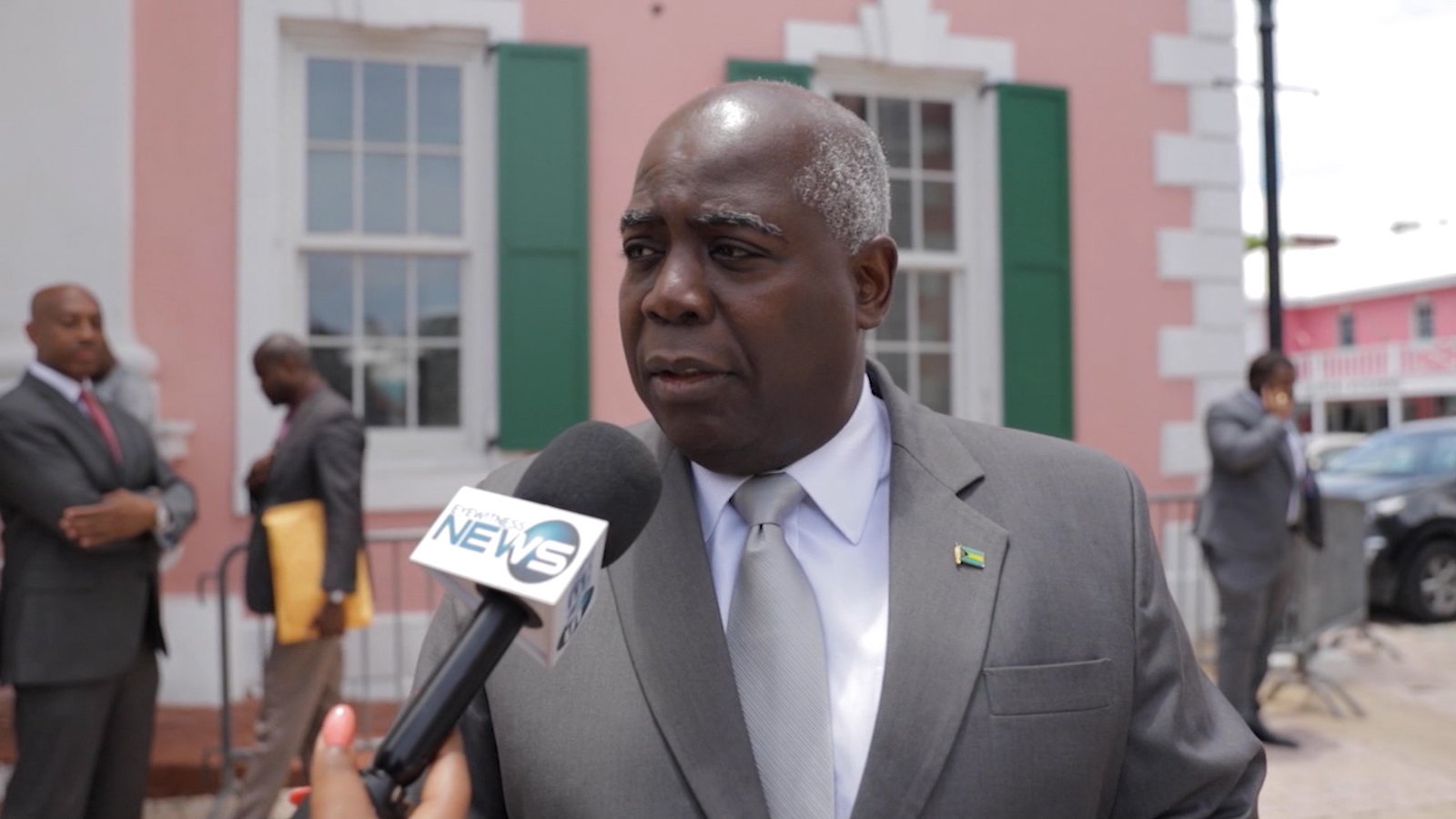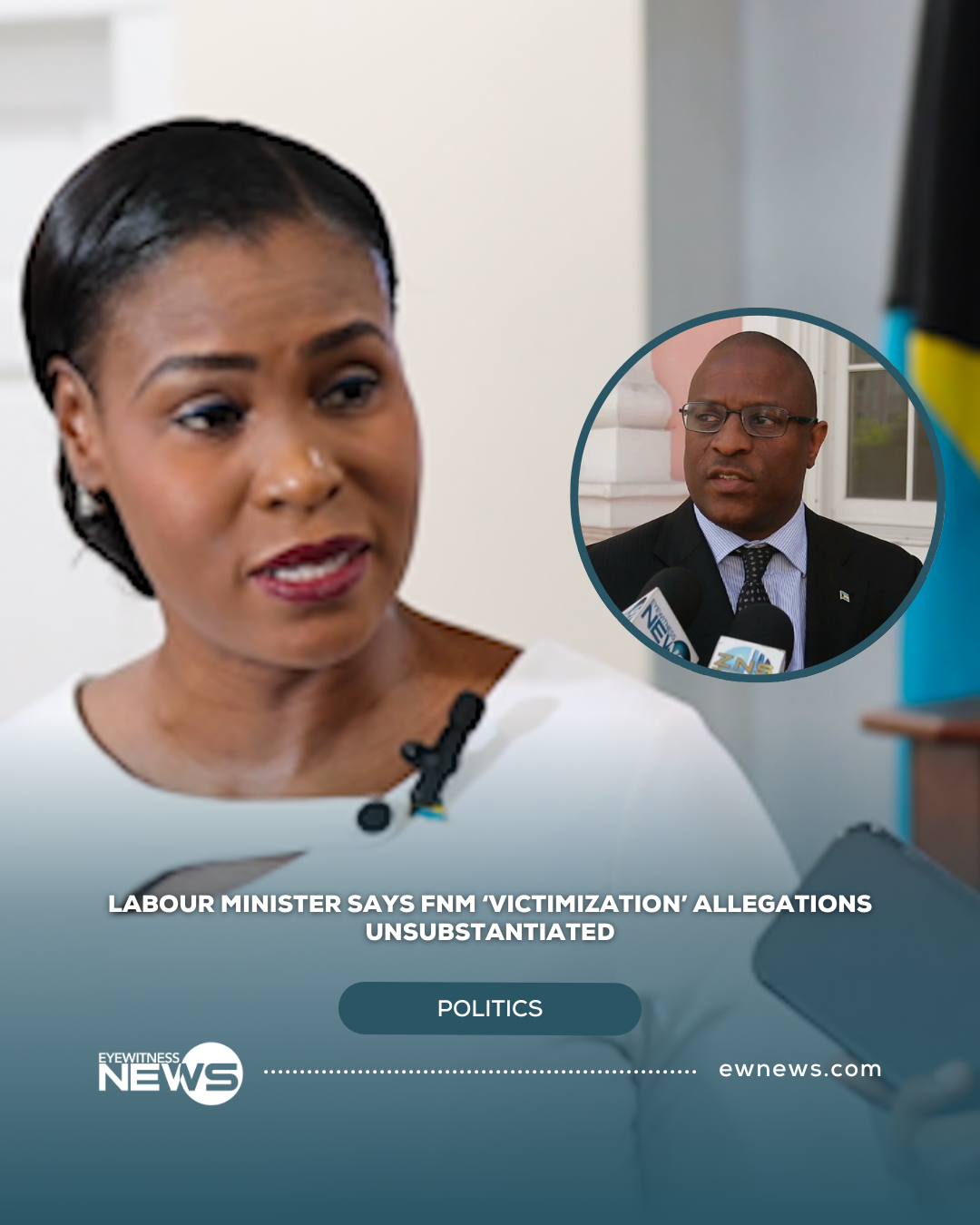PLP leader: If govt had just listened to me, we may not be where we are
NASSAU, BAHAMAS — Progressive Liberal Party (PLP) Leader Philip Brave Davis yesterday lambasted the government for what he said was a lack of action and failure to engage a local company to supply vaccines for the country amid the third wave of the coronavirus.
Daily cases have continued to rise over the last two weeks and officials have indicated that more contagious variants of the virus likely arrived in The Bahamas since last month and have contributed to some extent to the increase in COVID cases.
Speaking to reporters in the foyer of Parliament, Davis said the government was not vigilant or proactive with its response when warned of the different variants spreading across the globe earlier in the year.
“If they had only looked at what I was saying then, we may not be where we are,” he said.
“And what is troubling me is that I’ve been made aware that a reputable supplier offered to bring in the Moderna vaccine, Pfizer vaccine and AstraZeneca vaccine from early January and they are still waiting for vaccines.”
Health officials confirmed 68 new cases of COVID-19 in The Bahamas on Tuesday, taking the number of cases in the country to 9,868.
Of the newest cases recorded, 60 were on New Providence, six were on Grand Bahama, one on Exuma and one on Crooked Island.
Seven of those cases on New Providence had a recent history of travel.
There are currently 51 hospitalized cases — 48 are moderately ill and three are in the Intensive Care Unit (ICU).
The number of active cases stands at 464.
Davis said the government has failed to take into consideration the regional management of the pandemic and insisted that The Bahamas’ COVID-19 performance is the “worst” when you compare cases, deaths and vaccinations to other countries in the Caribbean.
“The virus didn’t start here. it’s not going to end here, either. But at the very least, we should be looking at countries that are doing better and try to adopt their practices rather than look at those countries that are doing worse,” he said.
Based on data from the World Health Organization, The Bahamas has recorded the highest number of cases per 100,000 residents when compared to other regional countries such as Saint Kitts and Nevis, Haiti, Grenada, Dominica, Trinidad and Tobago, the Cayman Islands, Antigua and Barbuda, Barbados, Jamaica, Guyana and Suriname.
“Take the offer”
Davis insisted The Bahamas continues to lag behind its regional counterparts when it does not have to.
“…We could be much better; it’s just that this government is refusing help from where help could come and I’m concerned about that,” he said.
During a statement in Parliament, Davis urged the prime minister to “embrace this assistance”, pointing to claims that the government was offered alternative COVID-19 vaccines by a local company but rejected the offer.
In response, Prime Minister Dr Hubert Minnis said many individuals proposed the sale of vaccines, however, a lot of them had not necessarily met World Health Organization requirements at the time.
Davis told reporters that the entity that made the offer to supply vaccines from early January are now supplying some other Caribbean nations.
The government has received more than 53,000 doses of AstraZeneca from the government of India (20,000) and the COVAX Facility (33,600).
On Tuesday, Head of the National COVID-19 Vaccine Consultative Committee Dr Merceline Dahl-Regis said all efforts are being made for other options and direct contact has been made.
She said Pfizer requires ultracold storage, which is not available given the archipelago.
Dahl-Regis indicated that Moderna advised the committee that The Bahamas could put in an order for 2022.
She said Johnson and Johnson advised that because The Bahamas benefitted from the COVAX Facility, it could not be in the queue to receive its vaccine directly, given its low supply.


















